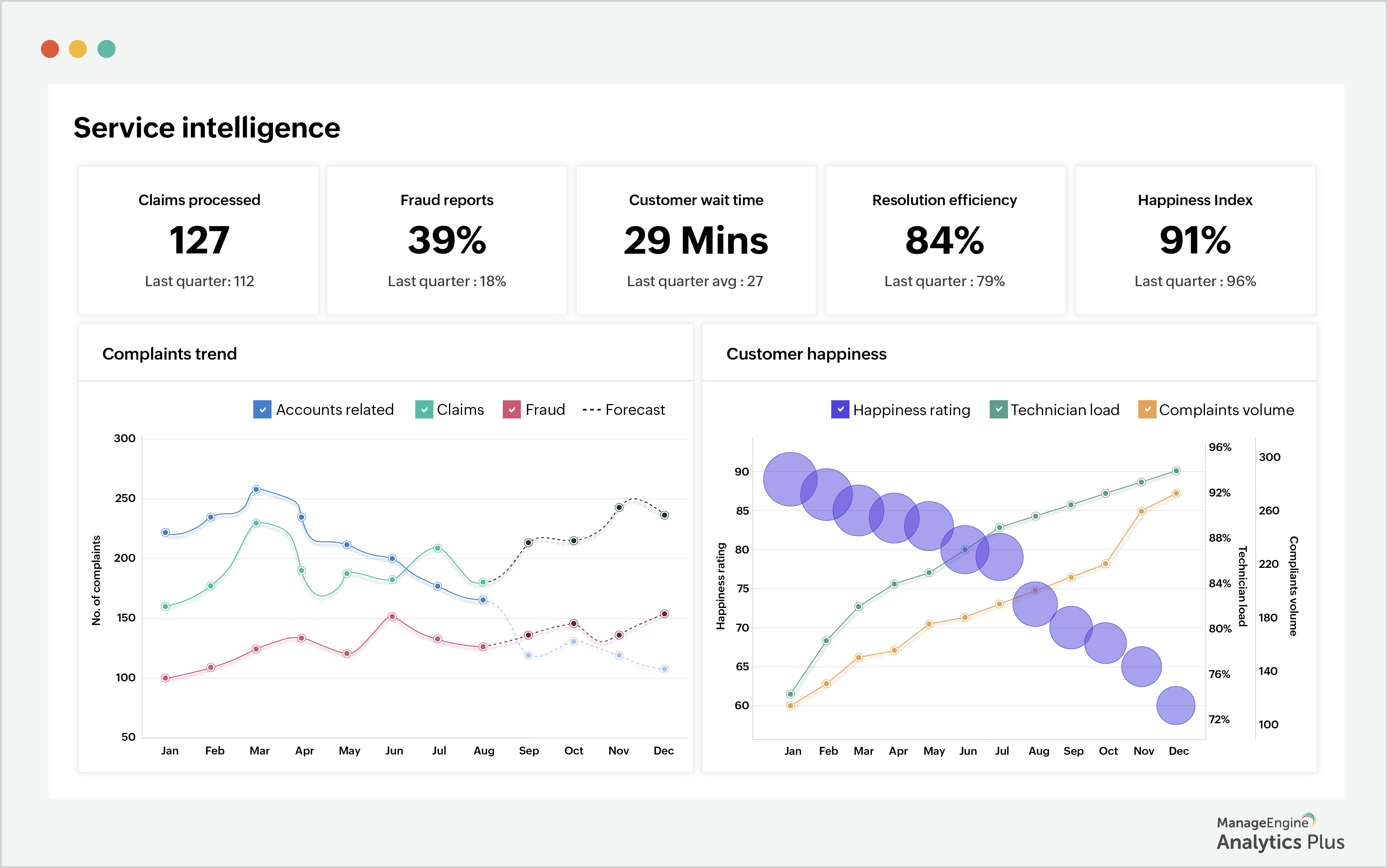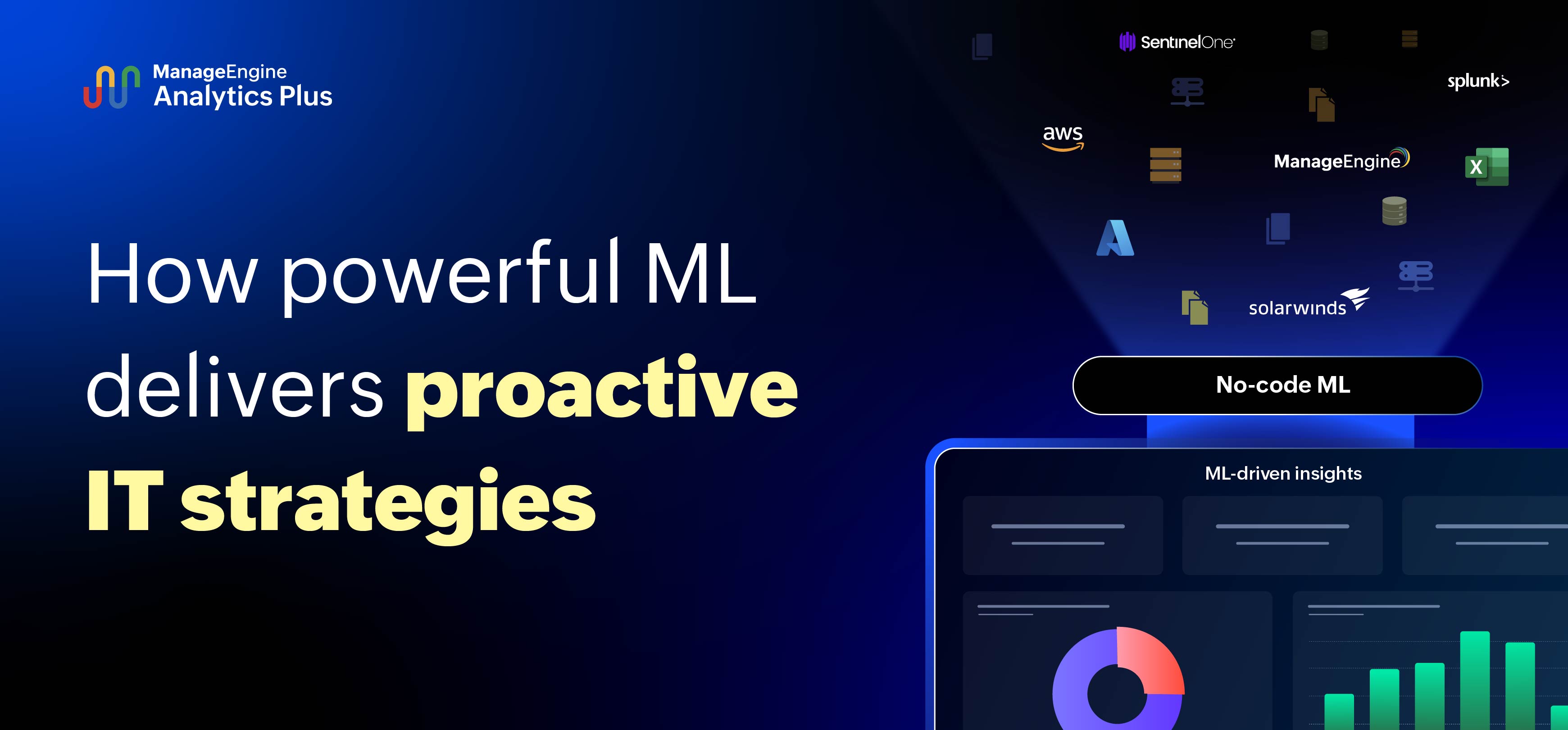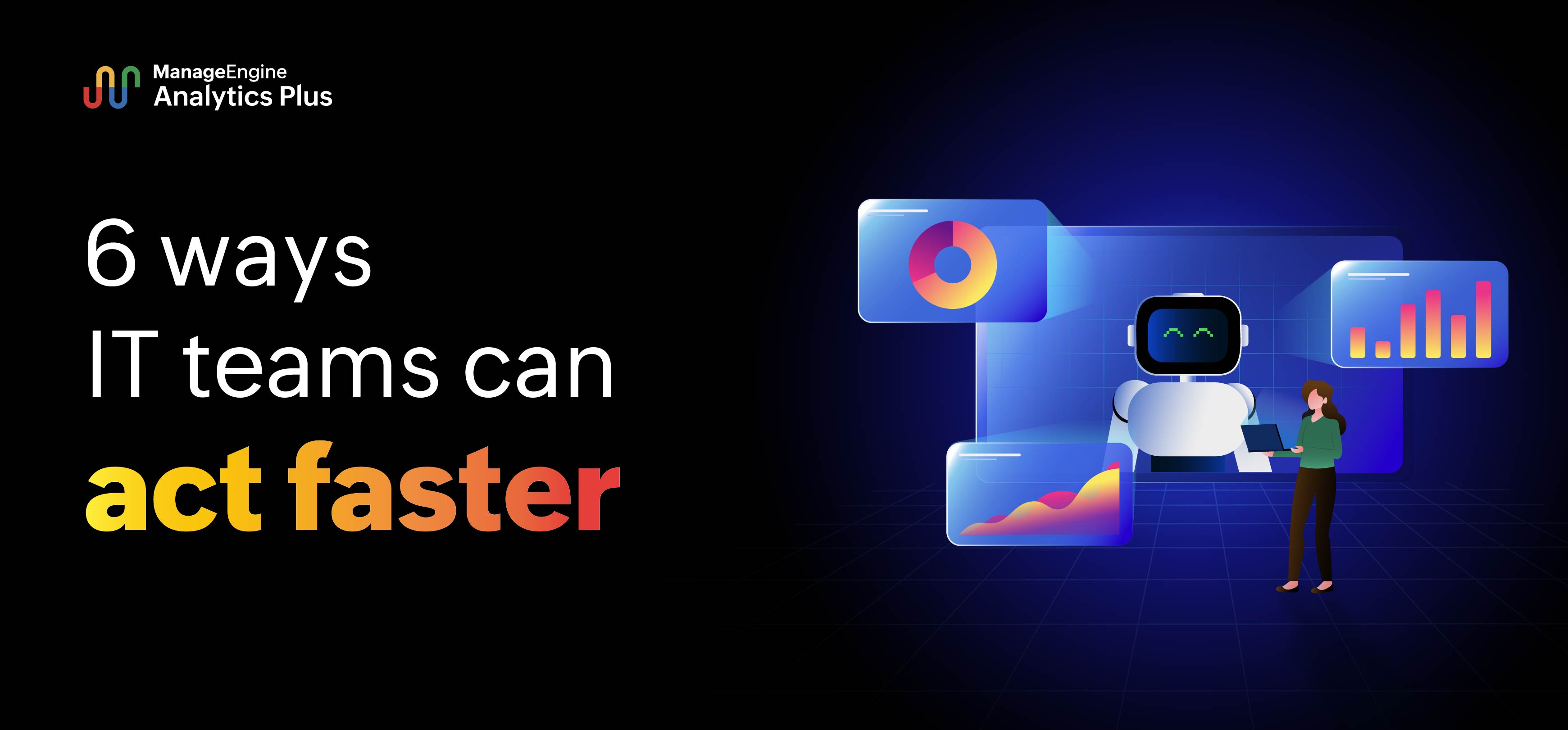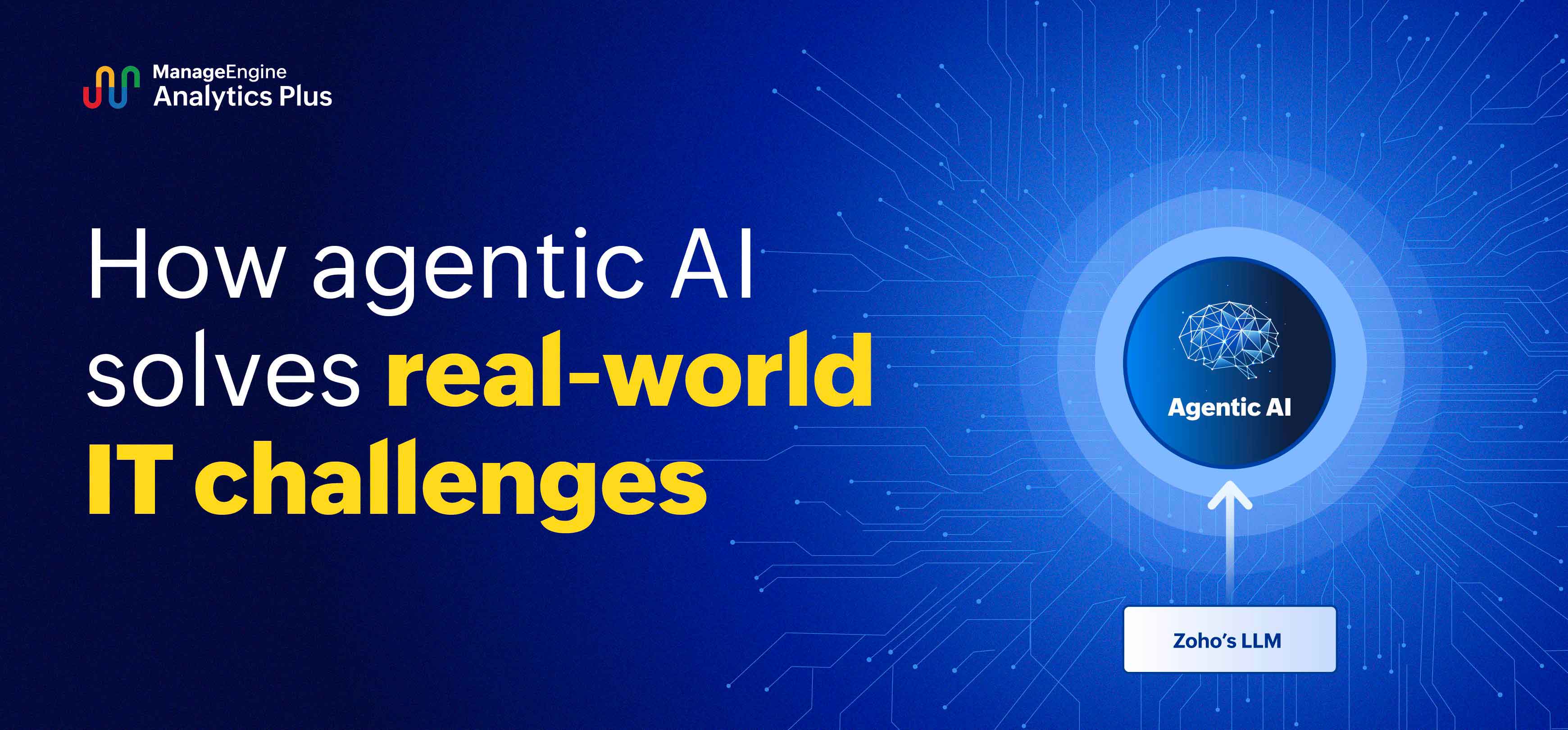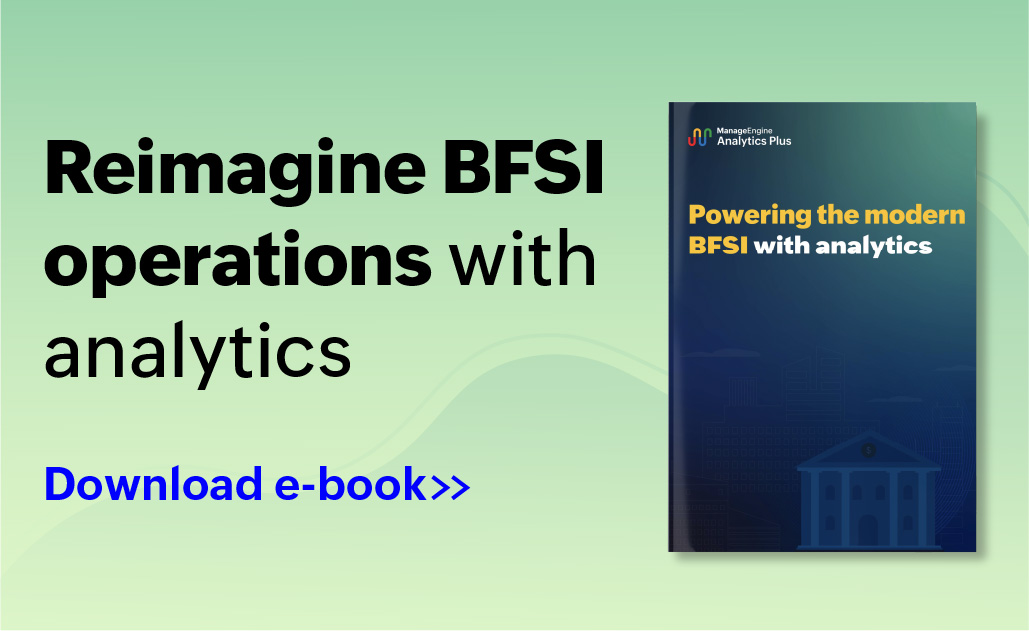- HOME
- ITSM Analytics
- Operational intelligence: Delivering cutting-edge insights across various industries
Operational intelligence: Delivering cutting-edge insights across various industries
- Last Updated: July 1, 2024
- 836 Views
- 6 Min Read
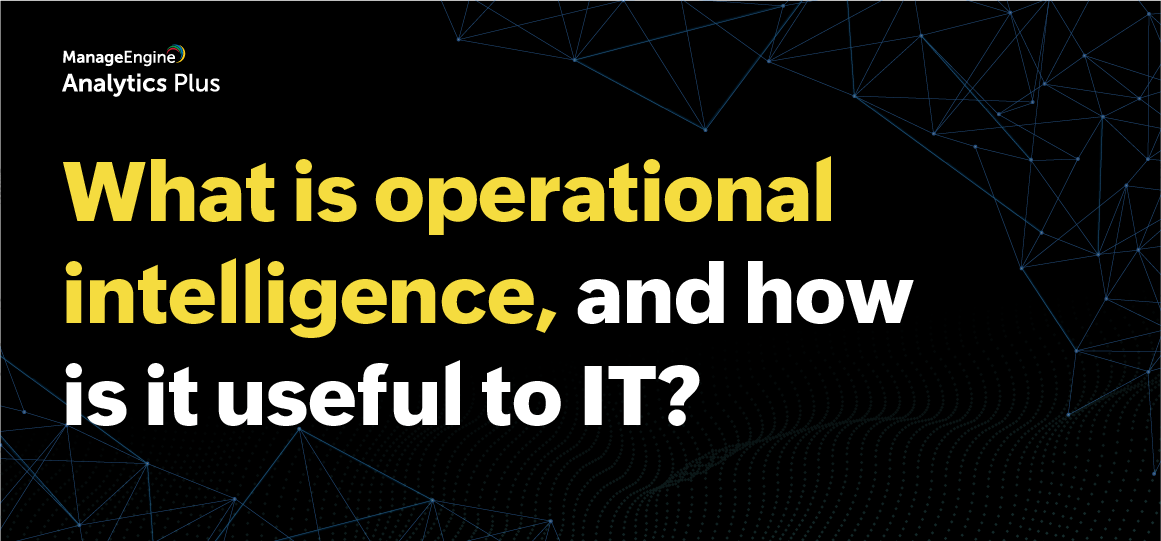
Organizations rely on data-driven insights to make critical decisions. IT is no exception. However, IT involves a highly complex set of tools, technologies, and applications that work in unison to power businesses from the back end. This means that the data from these tools, technologies, and applications are available only in silos. Anyone looking to make sense of this data and gather meaningful insights to make decisions is going to have to unify this data first. Operational intelligence aims to collate operational IT data and bring hidden insights to the surface so that IT leaders can confidently improve operational quality.
What is operational intelligence?
Operational intelligence is collating all IT data—from applications, tools, and databases—into a single pane view for analysis, insight gathering, and collaborative decision-making. Operational intelligence often involves real-time data, such as data from networks, applications, or endpoint monitoring tools. However, operational intelligence is not limited to analyzing real-time data alone. It involves prescriptive and diagnostic analysis of historical data that makes way for problem-agent discovery, root cause analysis, and solution hypothesis. Operational intelligence can also be extrapolated to foresee future trends confidently, changes, and outcomes. Such insight into the future allows senior leaders to prepare for threats and disruptions, plan for improvements, achieve targets and goals, and identify opportunities.
The primary use for operational intelligence in IT is to enable IT leaders to plan, orchestrate, streamline, and optimize IT operations for cost-effectiveness, efficiency, and continuous improvement. Primarily because operational intelligence effectively collects all IT data into a single pane system, advanced analysis such as data correlation and intel gathering is possible.
3 reasons why IT should leverage operational intelligence
Besides providing critical insights to enhance decision-making, operational intelligence also helps IT leaders to keep a holistic and real-time view of all the IT operations. Implementing operational intelligence in IT offers a myriad of benefits, from providing leaders with a bird's-eye view into the organization's operations to delivering an increased competitive advantage. Some of the top benefits include:
1. Gaining comprehensive visibility into operations
Operational intelligence provides 360-degree visibility into all IT operations and helps IT leaders make decisions based on strategic and tactical insights. Strategic insights can be used for long-term planning, while tactical insights can be used for day-to-day operations.
2. Enhancing customer experiences
By leveraging operational intelligence, IT leaders can gain insights into how their services and service quality impact user behavior; they can also understand end-user expectations and preferences, which can be used to develop more targeted and personalized experiences. By understanding user needs and preferences, IT teams can provide better customer service, improve service offerings, and increase end-user loyalty.
3. Predicting and preventing downtime
Operational intelligence enables IT leaders to monitor and analyze data in real time, which can help identify potential problems before they occur. By using data from all of IT as a whole, IT leaders can detect anomalies, predict failures, and prevent downtime. This proactive approach helps minimize disruptions, improve uptime, and reduce costs tied to downtime.
Operational intelligence use cases across various sectors
1. Banking
Customer experience is the new battleground for the banking sector—ease of access, ease of use, and faster resolutions are the new dimensions used to measure the success of the customer experience in the banking sector today. Hence, banking institutions are in dire need of a way to provide reliable, fast, and consistent customer service across both the web and mobile touchpoints to their customers. This makes it critical for organizations in the banking sector to have a solid IT infrastructure that can withstand drastic fluctuations in user traffic. Operational intelligence provides insight into network and app usage patterns and empowers banking sectors with insights to support every customer and improve the customer experience. Here are a few benefits of leveraging operational intelligence in the banking sector:
- Get a 360-degree view of the customer, including usage, preferences, and transaction load.
- Enhance customer experiences by providing seamless services across touchpoints.
- Deliver services faster by ensuring the infrastructure is adequately equipped to handle fluctuations in data volume.
- Perform better risk management and risk mitigation by understanding seasonal trends in traffic and server load.
- Build stronger customer relationships by understanding customer expectations and how they interact with apps.
2. Government
Operational intelligence has revolutionized private organizations by empowering them to use data to make faster decisions. So why should the government sector be left behind?
Governments are now looking to leverage operational intelligence to enhance their services, deal with social concerns more effectively, and increase transparency and citizen confidence. The government sector has one of the largest custom base —given that practically every citizen is their customer. The government sector's infrastructure, processes, and workflows must be robust and reliable to support a massive number of users. IT operational intelligence gives governments visibility into every aspect of IT management, empowering them with actionable insights to ensure the success of projects and missions. Here are a few benefits of operational intelligence to the government sector:
- Enable observability and improve data security by building user profiles for each employee based on their historical access patterns.
- Accelerate digitization and modernization efforts, and ensure citizens get to use the best that technology has to offer.
- Scale infrastructure to meet growing demands by understanding capacity requirements against budgetary constraints, and striking a favorable middle ground to support IT operations.
- Ensure 24/7 availability of government services by planning proactive maintenance and predicting when networks or services are likely to go down.
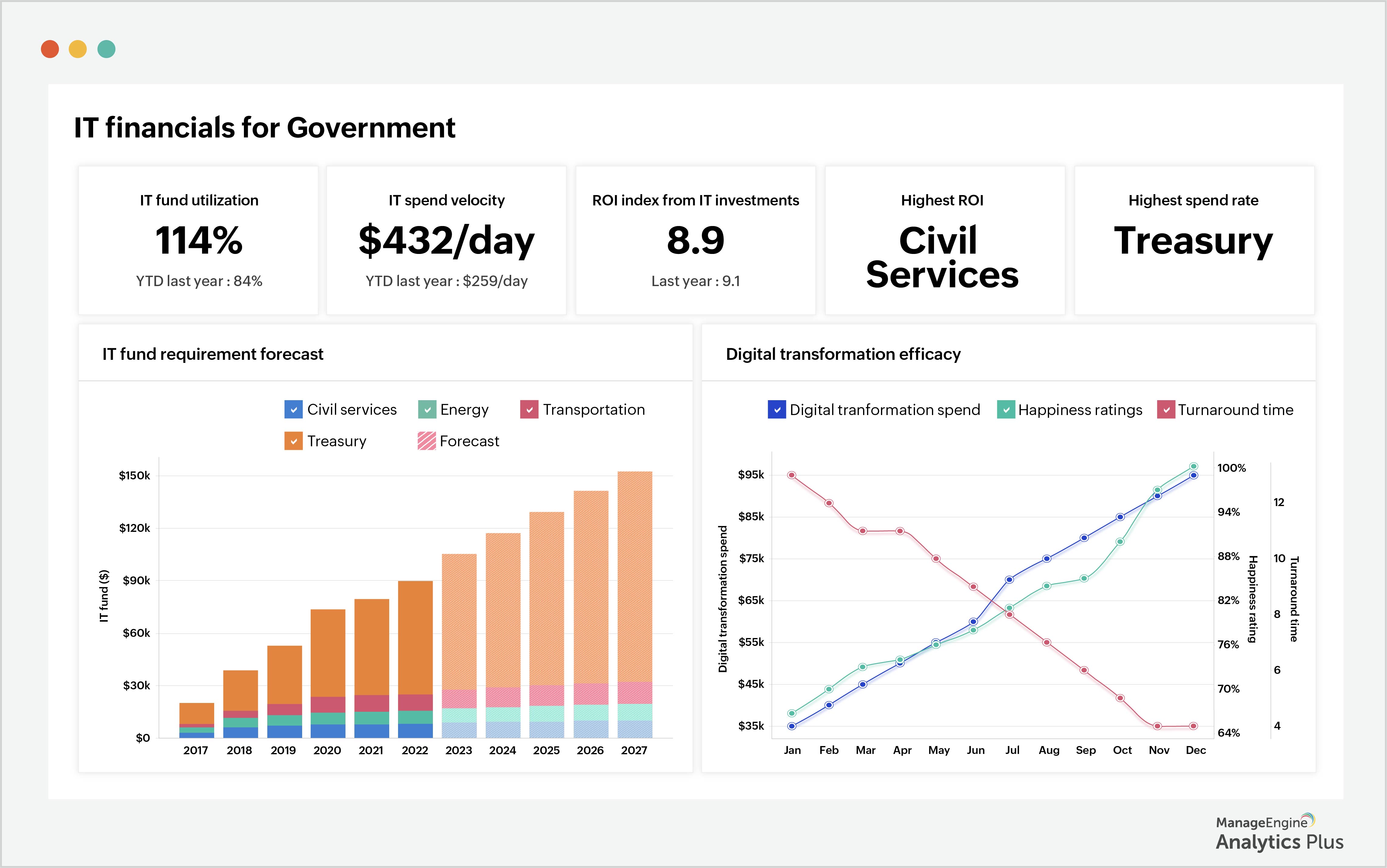
3. MSP
Despite the constant pressure from customers and rapidly evolving technology, MSPs are in a place to streamline their business processes to fulfill all customer expectations instantly and at optimum costs. Operational intelligence empowers MSPs in real time to make more informed decisions about every aspect of their services, including finances. With operational intelligence, MSPs can:
- Identify opportunities for growth, diversification, and cost reduction with 360-degree visibility into multiple customer accounts at a single glance.
- Streamline all the processes and ensure compliance with SLAs with a detailed analysis of workflows and processes.
- Ensure security compliance, and increase customer trust and loyalty.
Here's a sample dashboard for MSPs that gives an overview of how they can improve their decisions and take action with the insights provided.
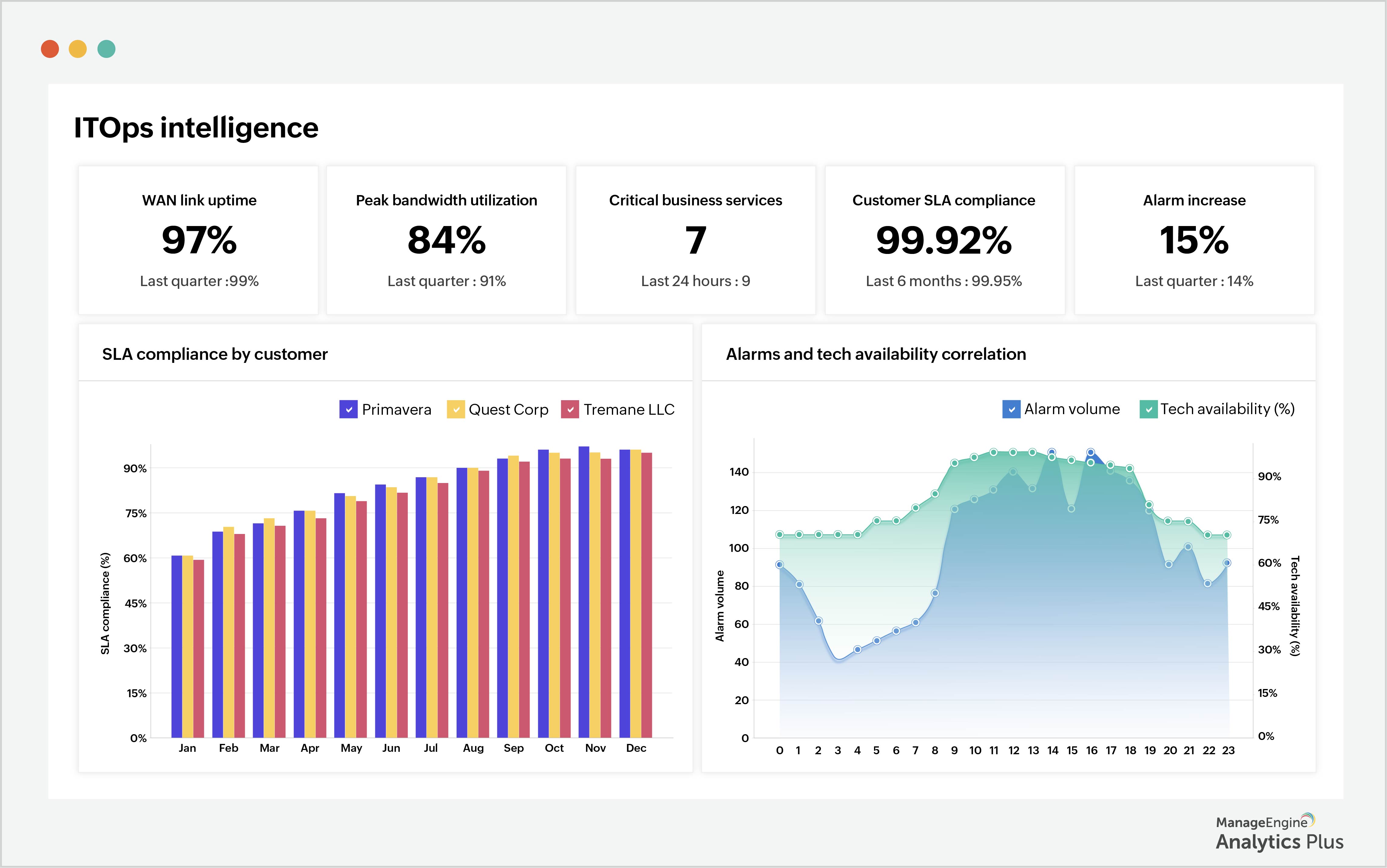
4. Healthcare
Healthcare organizations are under constant pressure to deliver the best outcomes, improve coordination, and cut operational costs. Additionally, in recent times, the demand for quality patient care has skyrocketed, inciting an increase in demand for critical equipment to provide medical care and attention. The COVID-19 pandemic further intensified this demand. As a result, organizations were left unprepared to handle emergencies at this scale. In this chaos, operational intelligence for healthcare has emerged to enable organizations to make life-changing decisions. Operational intelligence can also be leveraged to improve patient care at optimum costs and increase efficiency by identifying patterns, trends, and correlations in data. Operational intelligence in the healthcare industry can:
- Expedite decision-making, and deliver healthcare providers with insights to troubleshoot problems.
- Improve capacity planning to plan for emergency situations.
- Ensure around-the-clock service availability.
- Secure organizations' data, and reduce fraud.
- Increase the ROI of infrastructure assets.
- Increase operating speeds and adaptability.
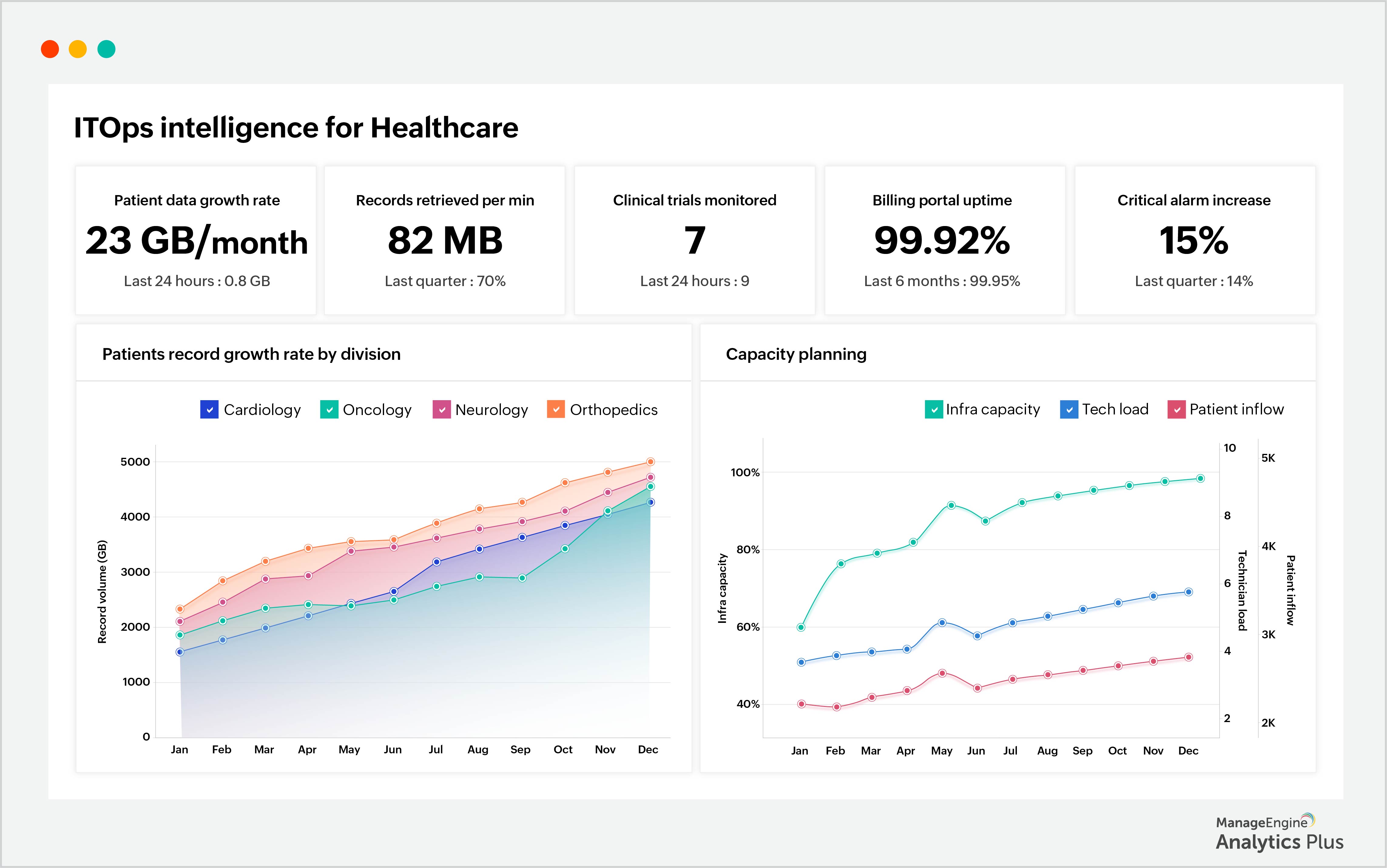
5. Education
Virtual classrooms, video lectures, and immersive learning applications have become the norm in education. To maintain with this revolutionary era, IT operations must provide both teachers and students with quick, reliable, and consistent services and support. Operational intelligence offers educational institutions visibility into the utilization, flaws, waste, and overuse of their IT infrastructure. This information can be used to derive insights for resolving problems and maximizing benefits, enabling organizations in the education sector to:
- Secure student and staff data.
- Plan infrastructure and IT budgets based on data.
- Ensure 24/7 availability of the institution's infrastructure.
- Optimize resource utilization with the help of operational intelligence.
6. E-commerce
Due to factors like shifting customer dynamics, the advent of multi-channel touchpoints, and an increase in competition, the e-commerce and retail sectors are undergoing a revolutionary change—trying to balance the cost of revenue with revenue. Operational intelligence offers retail and e-commerce sectors the ability to undercut the competition by minimizing operational costs while still delivering uninterrupted services to online shoppers. Additionally, operational analytics can be extended to provide shoppers with seamless, reliable, and hyper-personalized shopping experiences at well-optimized costs. Here are a few other benefits:
- Use customer data to personalize the individual experience.
- Create an informed strategy with data-driven decisions.
- Align infrastructure expansion with growth plans.
- Rapidly adopt new technologies to gain a competitive advantage.
The dashboards shown in this blog were built using Analytics Plus, ManageEngine's AI-enabled IT analytics application. If you'd like to create similar reports using your IT data, try Analytics Plus for free.
Talk to our experts to discover all the ways you can leverage operational intelligence and improve IT operations.

